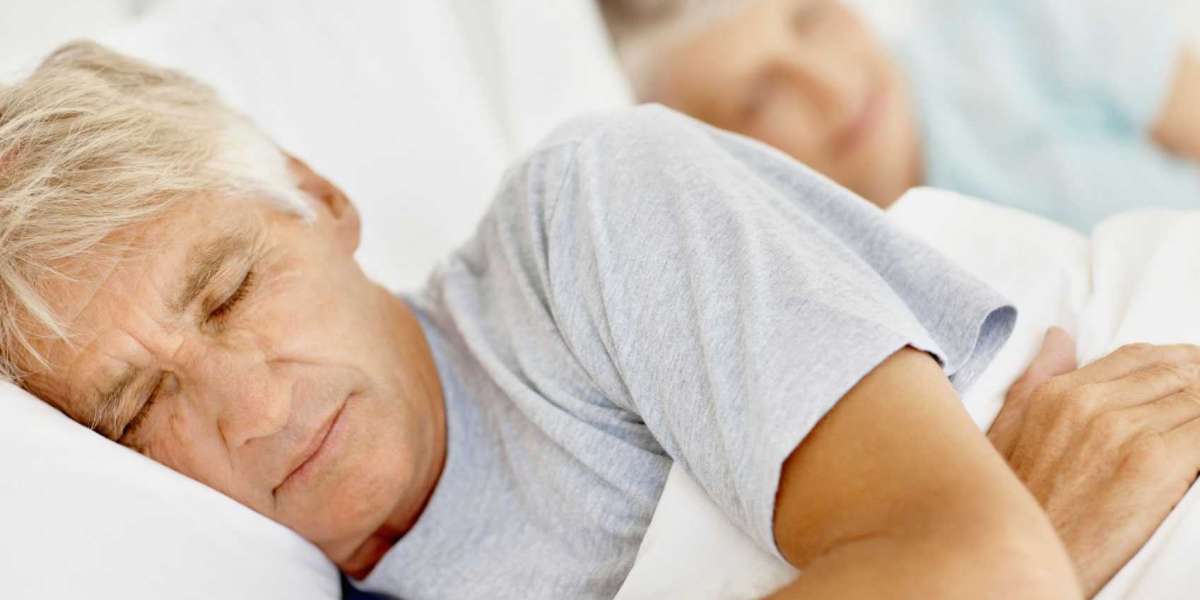Sleep and the process of aging
Normal changes in our sleeping patterns are common as we grow older, including becoming sleepy earlier in the day, waking up earlier in the morning, and experiencing less deep sleep. Restless sleep, waking up exhausted every day, and other symptoms of insomnia, on the other hand, are not a normal part of growing older. In terms of your physical and emotional well-being, sleep is just as important now as it was when you were younger.
It is believed that getting a good night's sleep helps to improve concentration and memory formation, as well as allowing your body to repair any cell damage that occurred during the day. It also helps to rejuvenate your immune system, which helps to prevent disease. Older adults who do not get enough sleep are more likely to suffer from depression, attention and memory problems, excessive daytime sleepiness, and more nighttime falls than those who do get enough sleep. Sleep deprivation is associated with a number of serious health problems, including an increased risk of cardiovascular disease in men and diabetes in women, as well as obesity and breast cancer in women.
It is critical to understand the underlying causes of your sleep problems in order to improve your overall quality of sleep. The following suggestions can assist you in identifying and overcoming age-related sleep problems, ensuring that you get a good night's sleep and improving the overall quality of your waking hours.
What amount of sleep do older adults require?
While individual sleep needs vary, most healthy adults require seven to nine hours of sleep per night. However, some people require more sleep. However, the way you feel in the morning is more important than the number of hours you sleep at night. The most obvious signs that you aren't getting enough sleep are waking up frequently and not feeling rested, as well as feeling tired throughout the day.
Tips for dealing with insomnia and growing older: Understand how sleep changes as you grow older.
Growing older causes your body to produce lower levels of growth hormone, which results in a decrease in slow wave or deep sleep (an especially refreshing part of the sleep cycle). When this occurs, your body produces less melatonin, which results in more fragmented sleep and waking up more frequently throughout the night. As a result, many of us consider ourselves to be "light sleepers" as we grow older. You may also choose to:
Want to go to bed earlier in the evenings and wake up earlier in the mornings? Try these strategies.
You'll have to stay in bed longer at night in order to get the hours of sleep you need, or you'll have to make up for lost time by napping during the day.
Sleep changes are common and do not necessarily indicate a sleep disorder in the majority of cases.
Sleep issues that are not related to age
It's common for people of all ages to experience occasional sleep problems. You may be suffering from a sleep disorder if you are experiencing any of the following symptoms on a consistent basis:
Even though you're exhausted, you're having trouble falling asleep.
When you are awakened, you have difficulty falling back to sleep.
After a good night's sleep, you don't feel rested.
During the day, you may become irritable or sleepy.
Have trouble staying awake when you're doing nothing, such as sitting still, watching television, or driving.
Having difficulty staying focused throughout the day.
Sleeping pills or alcohol are used to help you fall asleep.
Have difficulty keeping your emotions under control.
Tip 2: Identify the underlying causes of your insomnia and treat them.
Several underlying, but highly treatable, causes of insomnia or sleep difficulties are implicated in many cases. By identifying all of the potential causes, you can tailor your treatment to your needs.
Do you have a lot of pressure on your shoulders?
Do you have a bad mood? Do you have a sense of being emotionally flat or hopeless?
Do you suffer from a persistent feeling of anxiety or worry?
Have you recently gone through a traumatic experience? If so, tell us about it.
Are you currently taking any medications that could be interfering with your sleep?
Do you have any health issues that could be interfering with your sleep?
In older adults, there are several common causes of insomnia and sleep problems.
Sleeping habits and sleeping environment that are not healthy. These include irregular sleep schedules, the consumption of alcoholic beverages before bedtime, and falling asleep with the television on in the background. In order to sleep better, make sure your sleeping environment is comfortable, dark, and quiet, and that your bedtime rituals are relaxing.
Pain or medical conditions may be present. A number of health conditions, such as the need to urinate frequently and the presence of pain, arthritis, asthma, diabetes, osteoporosis, heartburn at night and Alzheimer's disease, can make it difficult to sleep. Consult with your doctor if you are experiencing any medical problems.
Menopause and postmenopause are two distinct stages of a woman's life. Many women experience hot flashes and night sweats as a result of menopause, which can make it difficult to sleep. Sleep problems can persist even after the menopause has passed. Improving your daytime habits, particularly your diet and physical activity, can be beneficial.
Medications. Older adults are more likely than younger adults to take a greater number of medications, and the combination of medications, as well as their side effects, can make it difficult to sleep. The medication prescribed by your doctor may be altered in order to help you sleep better.
There is a lack of physical activity. Because of your inactivity, you may never feel sleepy or you may feel sleepy all of the time. Regular aerobic exercise during the day can help you sleep better at night.
Stress. The stress that comes with major life changes such as retirement, the death of a loved one, or moving away from one's family home can be overwhelming. Nothing improves your mood more than finding someone with whom you can have a face-to-face conversation.
Lack of participation in social activities. Social activities, family, and work can help you maintain a high level of activity while also preparing your body for a restful night's sleep. If you're retired, consider doing volunteer work, joining a seniors' group, or enrolling in an adult education course.
Sleep apnea and other sleep disorders. Restless Legs Syndrome (RLS) and sleep-disordered breathing (such as snoring and sleep apnea) are more common in older adults, according to the National Sleep Foundation.
There is a scarcity of sunlight. A bright source of sunlight can assist you in regulating your melatonin levels and sleep-wake cycles. Make an effort to get at least two hours of direct sunlight per day. During the day, keep the shades open or invest in a light therapy box.
Tip number three: Improve your sleeping habits.
In many cases, addressing emotional issues, improving your sleep environment, and adopting healthier daytime habits can help you sleep better at night. Because everyone is different, however, it may take some trial and error to identify the specific changes that will help you sleep better.
Improve your quality of sleep at night.
Increase your melatonin levels in a natural way. Artificial light exposure during the night can reduce your body's production of melatonin, a hormone that induces sleep. Reduce the use of high-wattage bulbs where possible, and turn off the television and computer at least one hour before bedtime.
At night, avoid reading from a device with a backlight (such as an iPad). If you prefer to read from a tablet or other electronic device, consider using an eReader, which requires an additional light source to function properly.
Ascertain that your bedroom is quiet, dark, and cool, and that your bed is comfortable before going to bed. As we get older, we tend to become more sensitive to noise, and light and heat can also interfere with our ability to sleep. Using a sound machine, ear plugs, or a sleep mask can all help to improve your sleep quality.
You should only use your bedroom for sleeping and sex. By not doing any work, watching TV, or using your computer in bed, your brain will associate the bedroom with only sleep and sex instead of anything else.
Remove the clocks from the bedroom from view. It is possible that the light will interfere with your sleep, and that anxiously watching the minutes tick by will result in insomnia.
Maintain a consistent bedtime routine for better sleep.
Ensure that you have a regular sleep schedule. Put yourself to bed and wake up at the same times every day, including weekends.
Snoring should be avoided. If your partner's snoring is keeping you awake, consider using earplugs, a white-noise machine, or setting up separate bedrooms.
Make an effort to go to bed earlier. It is okay to adjust your bedtime to correspond to when you feel like going to bed, even if that is earlier than it was previously.
Create calming bedtime rituals for yourself. To help you wind down before bed, take a bath, listen to music, or engage in a relaxation technique like progressive muscle relaxation, mindfulness meditation, or deep breathing.
Sleeping pills and other sleep aids should be used in moderation. There are numerous side effects associated with many sleep aids, and they are not intended for long-term use. Sleeping pills do not address the underlying causes of insomnia and, in some cases, can make the condition worse in the long run.
Combining sex and sleep is a good idea. Sexual and physical intimacy, such as hugging, can help you sleep better at night.
How to take a nap
In the event that you are not feeling fully alert during the day, taking a nap may provide you with the energy you require to perform at your best for the remainder of the day. Try it out and see if it makes a difference for you.
Here are some suggestions for napping:
Keep it to a minimum. Even brief naps of five minutes or less can help to improve alertness and certain memory processes. The majority of people benefit from keeping their naps between 15 and 45 minutes in length. After taking a long nap, you may feel groggy and unable to concentrate properly.
Take a nap as soon as possible. Take a nap in the early afternoon. If you nap too late in the day, it may interfere with your nighttime sleep.
Make yourself at ease. Make an effort to nap in a relaxing environment, preferably one with limited light and noise.
Tip #4: Improve your sleep quality through diet and exercise.
Diet and exercise are two of the daytime habits that have the greatest impact on sleep. Beyond eating a sleep-friendly diet during the day, it's critical to be mindful of what you put into your body in the hours leading up to your sleepy time.
Dietary suggestions to help you sleep better
Caffeine should be avoided late in the day. Late in the day, stay away from caffeinated beverages such as coffee, tea, soda, and chocolate.
Avoid consuming alcoholic beverages before bedtime. Although it may appear that alcohol makes you sleepy, it will actually cause you to have trouble sleeping.
Prior to going to bed, satisfy your hunger. Eat something light and healthy for a snack, such as low-sugar cereal, yogurt, or warm milk.
Reduce your intake of sugary foods. Sugar and refined carbohydrates such as white bread, white rice, pasta, and French fries can cause you to be agitated at night and pull you out of the deep, restorative stages of sleep if you consume them in large quantities.
Large meals or spicy foods should be avoided just before bedtime. Large or spicy meals may cause indigestion or other digestive discomfort. Dinner should be eaten at least 3 hours before bedtime and should be of moderate size.
Reduce the amount of liquid you consume before going to bed. Reduce the amount of liquid you consume an hour and a half before bedtime to reduce the number of times you wake up to use the bathroom at night.
Exercise can help older adults who are suffering from sleep problems.
Exercise, particularly aerobic activity, causes the release of chemicals in your body that help you sleep better at night. You can engage in a variety of activities to prepare yourself for a restful night's sleep, regardless of your level of mobility or ability to move. However, before beginning any new fitness program, always consult with your doctor first.
Try:
Swimming and water exercises are recommended. Swimming laps is a gentle way to increase fitness that is especially beneficial for people with sore joints or weak muscles. Many community and YMCA pools offer swim programs tailored specifically to older adults, as well as water-based exercise classes to keep them active.
Dancing. If you enjoy moving to music, consider going dancing or enrolling in a dance class. Taking dance classes is also a fantastic way to broaden your social circle.
Lawn bowling, bocce ball, or pétanque are all options. These ball games are a low-impact way to get some exercise. The greater the amount of walking you do and the faster the pace, the greater the aerobic benefit you will receive.
Golfing. Golf is another activity that does not necessitate a lot of vigorous movement. Walking on the course provides an added aerobic benefit, and spending time on the course with friends can help to improve your mood.
Cycling or running are both good options. Even if you're in good shape, you can continue to run and cycle into your later years. Both of these exercises can be performed outside or on a stationary bike or treadmill.
Exercise that is aerobic in nature helps seniors sleep better.
According to the findings of a study conducted at Northwestern University, aerobic exercise resulted in the most significant improvement in sleep quality, including sleep duration, for middle-aged and older adults who had been diagnosed with insomnia.
Four times per week, the participants exercised for two 20-minute sessions or one 30-to-40-minute session, depending on their ability.
They engaged in at least two activities that required them to work at 75 percent of their maximum heart rate, such as walking or using a stationary bicycle or treadmill.
Their sleep quality improved, and they were no longer classified as poor sleepers but as good sleepers.
Those who participated reported fewer depressive symptoms, increased vitality, and decreased daytime sleepiness.
National Sleep Foundation is the source of this information.
Tip number five: Reduce mental stress.
It is possible for stress and anxiety that has built up during the day to interfere with sleep at night. When it's time to sleep, it's critical to learn how to let go of thoughts and worries that keep you awake.
Before you retire, keep a journal in which you can record your worries.
Check off tasks that have been completed on your to-do list, make a list of your goals for tomorrow, and then let them go.
Relax by listening to soothing music.
Read a book that will make you feel relaxed and at ease.
Get a massage from a friend or your significant other.
To prepare your body for sleep, try a relaxation technique like yoga or meditation.
Take advantage of any opportunities you have during the day to speak face to face with a friend about whatever is bothering you.
Getting back to sleep at night is difficult.
As you get older, it's normal to find yourself waking up more frequently at night. However, if you are having difficulty falling asleep again, the following suggestions may be helpful:
Don't be concerned. Getting stressed out about the fact that you are unable to sleep only serves to encourage your body to remain awake. Try to keep your thoughts out of your head and instead concentrate on the feelings and sensations in your body.
Make relaxation your primary goal, rather than sleep. Without getting out of bed, try a relaxation technique such as deep breathing or meditation to help you unwind. Relaxation, while not a substitute for sleep, can still be beneficial in terms of rejuvenating your body.
Engage in a quiet, non-stimulating activity to relieve stress. You should get out of bed and engage in a non-stimulating activity, such as reading a book, if you have been awake for more than 20 minutes. However, avoid using screens and keep the lights dim.
Keep your worries to a minimum. Make a brief note of what you are worried about on paper if you wake up during the night and put it off until the next day, when it will be easier to resolve the situation.
When should you consult a physician about sleep problems?
If you are unable to resolve your sleep problems on your own, keep a sleep diary and bring it to your doctor's attention. Keep track of when you consume alcohol, caffeine, and nicotine, as well as your medications, exercise, lifestyle changes, and recent stressors, and keep a journal to keep track of your progress. Your doctor may then refer you to a sleep specialist or cognitive behavioral therapist for further treatment, particularly if you are experiencing severe symptoms of insomnia that are affecting your mood and physical health.
In the case of insomnia in seniors, therapy is preferred over sleeping pills.
In some cases, such as during recovery from a medical procedure, sleeping pills and sleep aids can be effective when used sparingly. However, they will not cure your insomnia. Actually, they have been shown to make insomnia worse in the long run.
It is a type of psychotherapy that treats sleep problems by addressing the negative thoughts, worries, and behaviors that keep you from sleeping well at night. Cognitive-behavioral therapy (CBT) treats sleep problems by addressing the negative thoughts, worries, and behaviors that keep you from sleeping well at night. According to a study conducted at Harvard Medical School, cognitive behavioral therapy (CBT) was more effective at treating chronic insomnia than prescription sleep medications—and did so without the risks or side effects of prescription sleep medications. CBT can be carried out on an individual basis, in a group setting, or even online.



